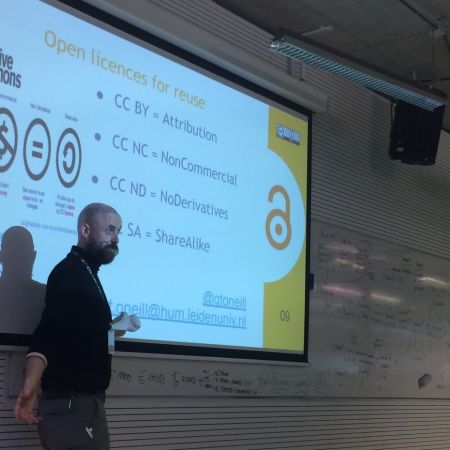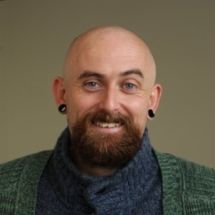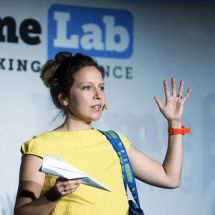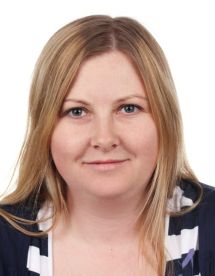
This workshop is organised by the University of Chemistry and Technology in Prague and is designed as an informal network event for (early-career) researchers with invited guests to address and discuss new trends and key topics such as Open Science, Science Communication, and Career Development and Mental Health issues for researchers.
Open Science is transforming science through digital tools and networks, to make research more open, global, collaborative, creative, and closer to society. Open Science is essentially an umbrella term for various practices such as Open Access, FAIR/Open Data, Open Methodology, Open Source, Open Peer Review, Open Education, Alternative Metrics, and Citizen Science. Researchers will be able, for instance, to process large amounts of scientific data and share their scientific results while improving access to knowledge and thus stimulating innovation.
Science Communication is an integral part of communicating the results of research. This is typically in the form of an article that is published in a specialist journal aimed at experts in a specific scientific field. There are, however, other ways for researchers to share the results of their research with other scientists but also with industry and members of the general public. Science Communication is crucial in these times of fake news: experts are needed who understand the complex topics being discussed (such as climate change) and can not only support their claims through validated research but also assess the truth of statements. Science communication is thus not only beneficial to researchers who gain a greater audience for their research but also to governments who set national and local policies and to the general public who pay for the actual research in the case of publicly-funded research.
Career Development especially for the non-academic labour market and Mental Health issues which early-career researchers are often facing are crucial topics nowadays. In the last two decades, the number of doctoral graduates has expanded in Europe and early-career researchers are confronted with the limited number of job opportunities in academia. Moreover, academic careers are becoming more competitive and complex and researchers are therefore expected to acquire new skills and knowledge outside of their own area of expertise. Doctoral candidates, in particular, are at risk as they are under tremendous pressure to succeed. To have a long and successful career, researchers need to be experts in research management, tolerate high levels of stress, and be capable communicators. Moreover they need to build international and interdisciplinary networks.
Target Group
We welcome anyone interested in these topics, especially early-career researchers (doctoral candidates, postdocs, junior researchers) and senior researchers.
When
Thursday 10 September 2020
Where
University of Chemistry and Technology (UCT), Prague - Uhelna
Registration - necessary throught registration form (until 6 September 2020, the number of places is limited)
Programme
|
14.45 - 15.00 |
Registration of participants |
15.00 - 15.15 |
Workshop Opening and Welcome Pavel Matějka (Rector of UCT Prague) |
15.15 - 16.00 |
Introduction to Open Science (presentation) Gareth O'Neill (Consultant on Open Science at Technopolis Group) |
|
16.00 - 16.15 |
Break |
16.15 - 17.00 |
Science Communication (presentation) Marina Rantanen (Researcher at TU Dortmund/Executive Secretary at the Marie Curie Alumni Association) |
|
17.00 - 17.15 |
Break |
17.15 - 18.00 |
Career Development and Mental Health (presentation) Eva Hnátková (Open Science Coordinator at UCT and NTK) |
|
18.00 - 19.00 |
Open discussion with speakers and audience Reception with Drinks |
Speakers
 Gareth O'Neill is a principal consultant on Open Science at Technopolis Group where he is working on the European Open Science Cloud (EOSC). He is an ambassador for Open Access and Plan S at cOAlition S and a theoretical linguist at Leiden University. Gareth is an expert on Open Science and Higher Education for the Dutch government and European Commission and is a former president of the European Council of Doctoral Candidates and Junior Researchers (Eurodoc).
Gareth O'Neill is a principal consultant on Open Science at Technopolis Group where he is working on the European Open Science Cloud (EOSC). He is an ambassador for Open Access and Plan S at cOAlition S and a theoretical linguist at Leiden University. Gareth is an expert on Open Science and Higher Education for the Dutch government and European Commission and is a former president of the European Council of Doctoral Candidates and Junior Researchers (Eurodoc).
Talk: The transition towards Open Science has recently been accelerated with the development of policies related to research publications (such as Open Access via Plan S) and research data management and sharing (such as the FAIR principles and the creation of the European Open Science Cloud). But what does this actually mean for (early-career) researchers: what exactly is Open Science; how do we do Open Science; and how far do we want to go with Open Science?
 Marina Rantanen is a MSCA doctoral researcher working on mechatronics and cyber physical systems at the Technical University Dortmund. She has previously worked on test automation and truck driving simulation at Scania, robotics projects at the European Space Agency (ESA), and smart mobility at the Royal Institute of Technology (KTH). Marina is executive secretary at the Marie Curie Alumni Association (MCAA) and specialises in visual presentation and Science Communication.
Marina Rantanen is a MSCA doctoral researcher working on mechatronics and cyber physical systems at the Technical University Dortmund. She has previously worked on test automation and truck driving simulation at Scania, robotics projects at the European Space Agency (ESA), and smart mobility at the Royal Institute of Technology (KTH). Marina is executive secretary at the Marie Curie Alumni Association (MCAA) and specialises in visual presentation and Science Communication.
Talk: Scientists typically publish their research in peer-reviewed journals aimed at their disciplinary colleagues. But there are many other ways for scientists to communicate their research in an easy and understandable way. This is known as Science Communication and is often aimed at a broader (public) audience and includes simplifying research, imaginative and fun graphics for complex ideas, short articles and blog posts that educate and engage readers, and social media channels (such as YouTube, Twitter, and podcasts).
 Eva Hnátková is an Open Science Coordinator at University of Chemistry and Technology and National Library of Technology in Prague. For many years, Eva has been active in the area of doctoral education, especially focusing on and representing doctoral candidates at the local, national and international level. She is a former president of Eurodoc and member of the Advisory Board in the European projects H2020-MSCA-ITN SAF21, Edulia and SwafS project DocEnhance. Eva obtained her PhD in Process Engineering at Tomas Bata University in Zlín, Czech Republic.
Eva Hnátková is an Open Science Coordinator at University of Chemistry and Technology and National Library of Technology in Prague. For many years, Eva has been active in the area of doctoral education, especially focusing on and representing doctoral candidates at the local, national and international level. She is a former president of Eurodoc and member of the Advisory Board in the European projects H2020-MSCA-ITN SAF21, Edulia and SwafS project DocEnhance. Eva obtained her PhD in Process Engineering at Tomas Bata University in Zlín, Czech Republic.
Talk: Early-career researchers are facing a diverse employment landscape that shifted significantly in the last decades. There is a growing range of careers in other sectors and across international settings out of academia including business, industry, non - profit organizations and government. These careers require particular skills and competences. Let's talk about how to boost the career development and mental well-being of early-career researchers to be more effective in the research and other employment settings.
For more information and details on the workshops, please do not hesitate to contact Eva Hnátková (eva.hnatkova@vscht.cz, +420 604 328 809)
